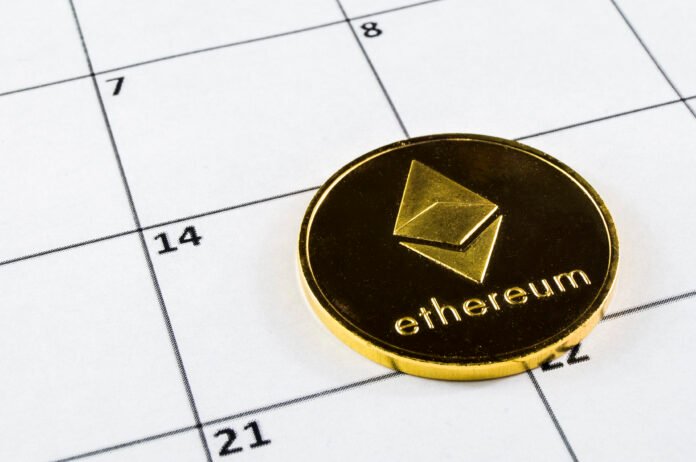When most people hear the term “blockchain,” their minds immediately go to cryptocurrencies like Bitcoin or Ethereum. While digital currencies were indeed the first and most well-known applications of blockchain technology, this innovation has grown far beyond speculative trading and decentralized finance. Today, blockchain is quietly transforming traditional industries—from healthcare and real estate to supply chains and energy.
This article dives into how blockchain is being adopted across various sectors, the real-world problems it solves, the challenges it still faces, and why staying informed through accurate Crypto News is critical as this technology continues to reshape the global economy.
What is blockchain, really?
At its core, blockchain is a distributed ledger technology (DLT). It allows data to be recorded across a network of computers in a way that is:
- Immutable (once added, data cannot be altered),
- Transparent (accessible and verifiable by all participants), and
- Decentralized (not controlled by a single entity).
These attributes make blockchain highly suitable for industries that rely on trust, security, and transparency—which is practically every major industry in the world.
Supply chain management: From source to shelf
Supply chains are complex and often lack transparency. Products travel across multiple countries, change hands between manufacturers, distributors, and retailers, and are subject to fraud, counterfeiting, and inefficiencies.
Blockchain offers a clear solution:
- Each step in the supply chain can be recorded as a “block” in a shared ledger.
- Every participant (supplier, shipper, retailer) can verify the product’s origin and journey.
- Consumers can scan a QR code and view a product’s history—from farm to fork or factory to floor.
Major companies like IBM, Walmart, and Maersk have already adopted blockchain-based platforms to track goods in real time, reduce waste, and build consumer trust.
Healthcare: Securing sensitive data
The healthcare industry is burdened by fragmented systems, outdated infrastructure, and serious concerns about patient data security.
Blockchain provides:
- Tamper-proof medical records: Patients can own and control access to their health data, which can be shared securely with doctors or hospitals when needed.
- Efficient data sharing: Between labs, insurers, and medical providers—improving diagnosis and reducing errors.
- Provenance for pharmaceuticals: Tracking the lifecycle of medications to prevent counterfeiting and ensure safe distribution.
Projects like MediLedger and Solve.Care are leveraging blockchain to revolutionize patient care and streamline healthcare administration.
Real estate: Cutting out the middlemen
Real estate transactions involve multiple intermediaries—agents, brokers, notaries, escrow companies—all of which add time and cost.
Blockchain can simplify this:
- Smart contracts automatically execute purchase agreements when pre-set conditions are met.
- Ownership records can be stored securely and publicly, reducing fraud and simplifying title searches.
- Tokenized real estate platforms allow investors to buy fractional shares of properties, increasing accessibility to real estate markets globally.
This could make property sales faster, cheaper, and more transparent—especially in markets where corruption or red tape are prevalent.
Energy and sustainability: Enabling peer-to-peer grids
The traditional energy grid is centralized, prone to inefficiencies, and slow to innovate. Blockchain is helping to:
- Create decentralized energy markets, where individuals can trade electricity generated from solar panels or wind turbines directly with others in their community.
- Track carbon credits in a transparent, tamper-proof way.
- Incentivize sustainable behavior through token-based rewards systems for recycling, reduced consumption, or green transportation.
Blockchain-based energy platforms like Power Ledger and WePower are pioneering new models of clean, decentralized energy distribution.
Logistics and transportation: Enhancing visibility
Whether it’s delivering a package or shipping a car across continents, logistics companies need transparency and accountability.
Blockchain enables:
- Real-time tracking of shipments, including temperature, location, and delivery status.
- Smart insurance contracts that automatically trigger payouts based on events (e.g., damaged goods).
- Tamper-proof records of cargo handling and transport conditions, helping prevent theft or loss.
FedEx, UPS, and DHL are among the logistics giants exploring blockchain to improve efficiency and customer satisfaction.
Voting and governance: Reinventing democracy
One of the most talked-about (yet controversial) uses of blockchain is in voting systems. The goal is simple: allow people to vote securely from anywhere, reduce fraud, and increase transparency.
Blockchain voting platforms aim to:
- Ensure voter identity without compromising privacy.
- Record votes immutably so they can’t be altered or deleted.
- Offer auditability, enabling both authorities and citizens to verify results independently.
Countries like Estonia have already embraced digital governance using blockchain principles, while pilot projects in the U.S., Switzerland, and South Korea show promising results for secure e-voting systems.
Intellectual property and media: Protecting creativity
The digital age has made it easier than ever to copy and distribute content—leading to challenges in proving ownership and ensuring fair compensation.
Blockchain helps artists, writers, and musicians by:
- Timestamping creations to prove originality and ownership.
- Enabling micro-payments through smart contracts that pay royalties automatically upon use or purchase.
- Preventing piracy by linking digital media to blockchain-based licenses.
NFTs (non-fungible tokens) have become the most popular expression of this concept, but the potential goes far beyond art—it includes software licensing, academic research, journalism, and beyond.
Challenges of blockchain adoption in traditional industries
Despite its potential, blockchain adoption is not without hurdles:
1. Scalability
Public blockchains like Ethereum still struggle with network congestion and high transaction fees. Layer 2 solutions are being developed but aren’t yet widespread.
2. Regulatory uncertainty
Many jurisdictions have inconsistent or unclear rules around data privacy, tokenization, and blockchain-based contracts.
3. Integration with legacy systems
Many enterprises use outdated infrastructure, and integrating blockchain requires costly upgrades or replacements.
4. Lack of technical expertise
There’s a shortage of blockchain developers and professionals who can bridge the gap between tech and business use cases.
5. Public perception
For some, blockchain is still synonymous with speculation or crime. Educating stakeholders about its legitimate applications is key.
The importance of staying updated with reliable Crypto News
Given the rapid pace of innovation, legislation, and technological development, it’s more important than ever to stay informed. Blockchain’s applications are expanding daily, and being up-to-date offers significant advantages:
- Spot investment opportunities early in new sectors (e.g., tokenized real estate, decentralized energy)
- Track enterprise adoption announcements and partnerships
- Understand global regulatory shifts affecting specific industries
- Stay ahead of technological breakthroughs like zk-rollups, interoperability solutions, and consensus upgrades
Platforms like Crypto News provide timely, accurate, and well-analyzed coverage of developments not only in cryptocurrencies but across the entire blockchain ecosystem.
Whether you’re a business leader, investor, developer, or curious observer, having access to quality news can help you make better decisions and identify real-world use cases before they go mainstream.
Final thoughts: Blockchain beyond Bitcoin
Bitcoin introduced the world to the concept of decentralized, peer-to-peer value exchange. But blockchain’s true potential goes much further.
From hospitals to factories, government offices to art studios, blockchain is quietly revolutionizing how data is stored, transactions are verified, and trust is established in the digital age.
We’re only scratching the surface of its impact. As adoption accelerates and technology matures, the industries that embrace blockchain early will likely lead the way into a more transparent, efficient, and secure future.
And to stay at the forefront of this revolution, following trustworthy, forward-thinking Crypto News is not just helpful—it’s essential.
Because blockchain isn’t just the future of money—it’s the future of everything.



